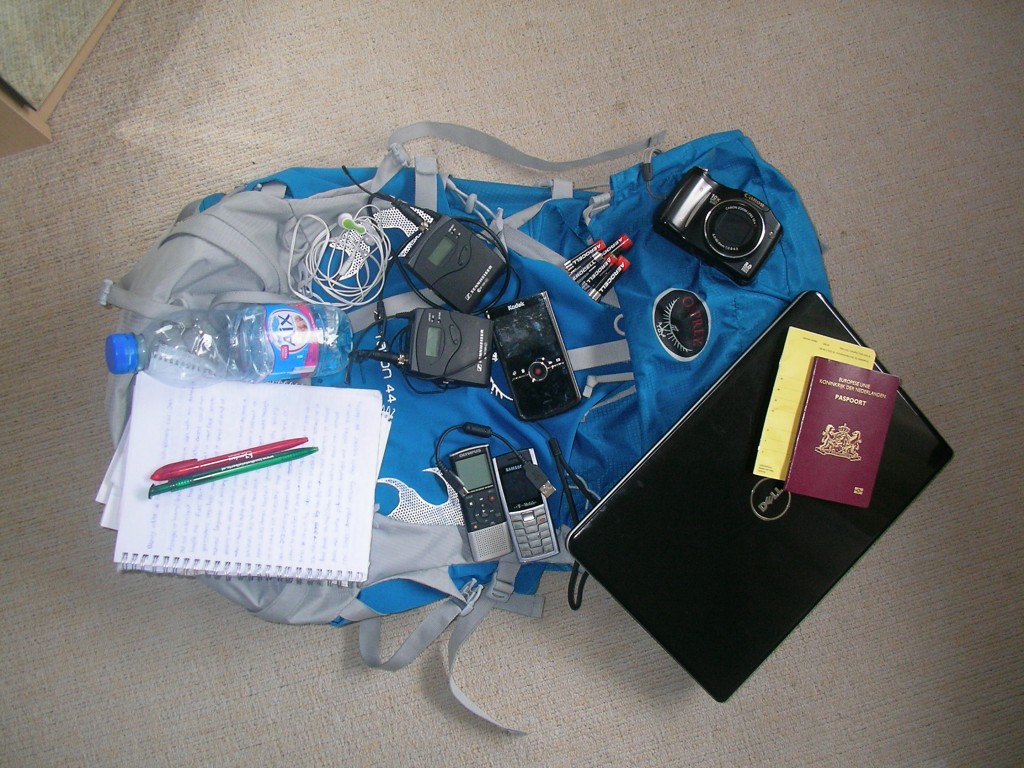Dutch freelance journalist Gemma van der Kamp spent her summer travelling across Europe meeting journalists and “non-journalistic news producers” as part of a Summer Reporter project run by De Nieuwe Reporter (DNR). She shares her seven tips for backpack reporting.
1. Travel third class or buy a bicycle. In the midst of curious locals who wonder what you are doing, you quickly get to know the country. Working on hard wooden benches in shaky trains might be uncomfortable; it is much more fun than feeling lonely in fancy single first class coupés. Riding a bicycle is even better.
2. If you work across Europe and travel by public transport, use the convenient journey planner from the German Railway Network . This online tool maps out how best to travel from the North of Denmark across Moldavia to Southern Italy and is strikingly accurate.
3. Sell your work internationally. If you work internationally and want your work translated in other languages or need video subtitles, have a look at Straker Translation. This online translation company has developed its own machine translation model, though uses human editors to make sure the translation is accurate.
4. Be patient. Adapt your concept of time and distance. An hour in the UK is equal to ten minutes in India. Agreeing on meeting up at 4pm, might turn out to become 8pm in some countries. A 60km trip that takes an hour in the UK can last a day in Ukraine. Take these factors into account when agreeing on deadlines for your work.
5. Pop up and be nosy-poky. To quickly find your way in a new country and to find good stories, get away from the computer and go out to talk to people. Ask people where the media outlets are based and where local journalists gather for drinks. Local journalists usually have a wide network and can easily introduce you to potentially interesting sources. Don’t put too much energy in trying to arrange meetings before your arrival. Simply pop up by knocking on doors.
6. Dare to be unprepared. If you have no idea whether you really have secured an interview, don’t worry. Dare to take the risk to travel for hours to the agreed meeting place, because you unconsciously keep your eyes open for a possible alternative story. The best stories often are the result of chance encounters.
7. If you live on a shoe string, try to spend nights at other people’s couches via the home stay network couchsurfing. It is the ideal way to get to know locals and it could open doors to a more permanent place to stay. When I lived in New Delhi, one couchsurf night resulted in a three months’ stay for a minute rent.
